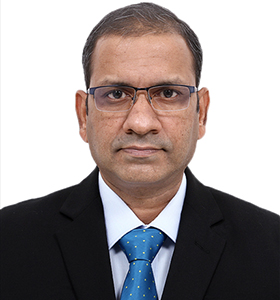On an average it takes more than 12 years to develop new medicines with costs often going up to a few billion dollars. Once medicines are approved by health regulatory authorities and available for use by patients, only a proportion of them comply with their doctor’s prescription in real world scenario. In the development phase of new medicine, various types of clinical trials are conducted, which often include large scale randomized clinical trials. In these trials, patients who are very sick, especially those with co-morbid disease conditions are excluded and more homogenous patient population is selected by the concerned doctors and sponsors of the clinical trial. This limits the clinical insights into how the new medicine(s) and overall treatment would affect the general population affected by the particular condition. This is where conduct of real-world evidence (RWE) data generating studies becomes important. In the last few years, RWE studies are increasing being performed because of the further efficacy, quality of life, safety/tolerability and convenience of new medicines can be assessed in regular clinical practice setting.
In healthcare and also more recently in clinical trials, use of digital technologies has become the norm especially with a focus on improving outcomes for patients. This use of technology has been accelerated during the last 2 years of COVID-19, with RWE studies using technological advances to collect data and generate meaningful clinical insights with goal to improve patients’ lives via managing their health conditions better. COVID-19 has already taught the healthcare and pharmaceutical industry on how to plan and implement clinical trials in a faster and more efficient manner, examples of which include several large scale clinical trials involving Vaccines and other new medicines. Overall, with a high focus on patient-centric approach, digitalization has paved a way for new techniques, devices and methods in healthcare industry.
During the COVID-19 pandemic with restrictions of travel for patients and people to hospitals and clinics, patients were often followed-up via telephone or digital means (use of video assessments) using principles of telemedicine. This approach was also extended to clinical studies which included RWE studies. The healthcare professionals (HCPs) and those involved in these studies could assess their patients’ vital parameters, symptoms/complaints, and gather information of their condition using different devices also. In these studies, patients who were managed in out-patient setting, were only required to visit hospitals or clinics when their condition worsened, or they needed more extensive investigations. Further, medications used in these studies were also delivered to their respective homes, with instructions given about their self-administration, where feasible, or alternatively a home health nurse administered these at the required frequency. In these RWE studies, the questionnaires and diaries were designed to be completed by patient electronically through a web application or via input into a specific device, using digital technology. This led to the additional advantage of real-time data availability and regular assessment of patient’s health status by their doctors. During COVID-19, another new development was consent of study participants via electronic means by use of mobile application with all information shared by their doctor and staff using digital means.
Overall, there has been a positive impact on the healthcare industry in last few years with rapid adoption of digital technology both in patient care and generating data and evidence in the real-world setting. This is evident from both large tertiary care hospitals as well as small clinic using technology for patient care and extending the same to collect and record data of their patients who participate in RWE studies.
Profile of Dr. Ramesh Jagannathan, Vice President, Clinical Research & Pharmacovigilance, Bharat Serum & Vccines Ltd

Dr Ramesh Jagannathan has 22 years’ experience in the Bio-pharmaceutical industry, he is Vice-President, Clinical Research and Pharmacovigilance at Bharat Serums and Vaccines Ltd (BSV). Since September 2020 at BSV, he had led the Medical Affairs group for Critical Care and Emergency Medicine division for two years. He has previously worked in leading companies such as AstraZeneca (12 years), Novo Nordisk, Dr. Reddy’s and Biocon. He has held leadership responsibility in areas of Medical affairs, Clinical research and Clinical development and Pharmacovigilance in his various roles. His therapeutic area experience is varied and includes Oncology, Diabetes, Infectious Diseases, Critical Care, Respiratory and Cardiovascular system. He had been involved in several New Product launches in these therapeutic areas, led presentations to New Drugs and Subject Expert Committees at regulatory authority and interacted with leading experts in the field in India. He is a Physician by training with post-graduate medical qualifications from India and United States.
LSW LifeScienceWorld